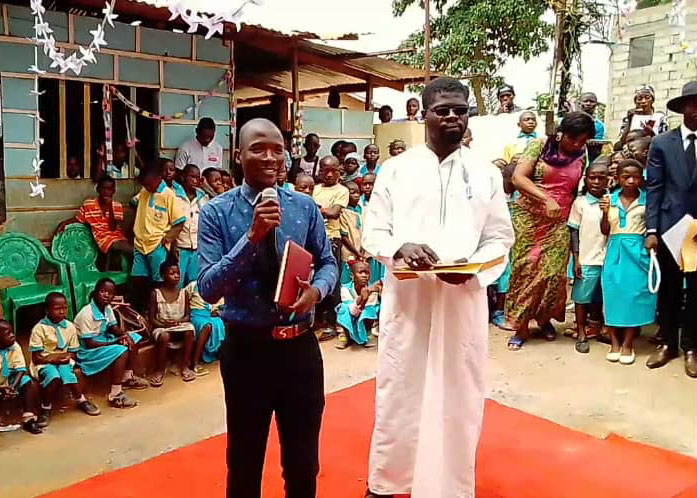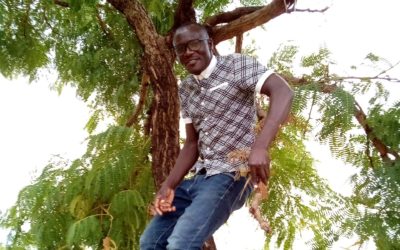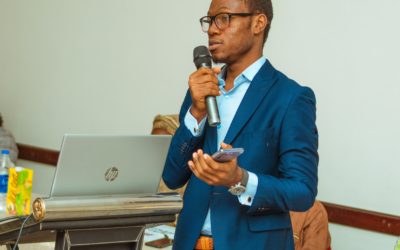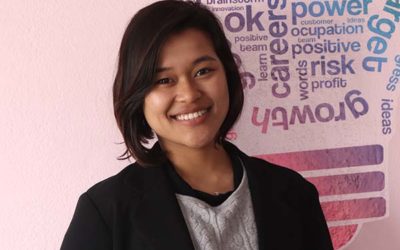To Prime Minister of the Republic of Cameroon
H.E Joseph Dion Ngute
RE: Call to action on transforming education system in Cameroon
Dear Mr. Prime Minister, it is commonly known that quality, inclusive, and modern education is required for sustainable development. Fostering sustainable development is a legitimate goal for all nations, yet our educational system is far from meeting expectations and requirements thereof.
Considering the realities we all know in our country and with the outbreak of COVID-19, the diagnosis of our education system is neither satisfying nor favourable to young people’s needs. Therefore, something needs to be done and I am hereby sharing what we, young people from Cameroon and around the world, are suggesting towards a rewired education system that benefits primary stakeholders and helps us achieve SDG4. So in order to make it possible, your action is indispensable as the Paris Pre-summit (June 28 to 30, 2022) and the Summit scheduled for September 19, 2022 are approaching.
Your excellency, Kaigama Ismael is my name. I am Cameroonian, youth leader and member of the “Unlock the Future Coalition Action Group on Transforming Education” created by youth with support from the United Nations Foundation.
I am writing to you today for 4 main purposes including sharing with you: the current challenges young people face as result of an eEducation system that is no longer of our interest; changes we would like to see in it; the reason why we would like you to engage in the above mentioned summits; and finally our request to you related to the drafting of Cameroon’s National Statement of Commitment by August.
Your Excellency, children and young people are desperate about the current education system and need transformation now. While some are requesting the right to a quality education, others just ask for the possibility to be educated at all. This statement outlines two important aspects of education: access to and quality of education, which constitutes one of the biggest challenges young people and modest families face.
Unemployment has become young people’s occupation and concern. Despite their level of studies, youth generally lack the necessary skills, experience, and updated knowledge to enter the business world. This shows how much our education systems should be changed.
Since the outbreak of the COVID-19, many schools have been shut down resulting in mass education disruption. But in several corners of the world, students keep learning through highly developed online systems. In Cameroon, online studies were not possible because of the lack of technical and material means.
As a teacher, every day I spend time and discuss with learners on community issues or philosophy. Most students usually showcase their inability to maintain decent and constructive debates. In order words, they tend to demonstrate poor critical thinking.
Disabled children and young people in remote areas generally end up illiterate because of the lack of education. Rural areas do not have specialised schools for children with special needs of education, and girls are still marginalised in education in many regions of the country.
Your Excellency, these challenges are far from being exhaustive and they should be tackled now.
As far as solutions are concerned, your Excellency, young people have formulated the following:
We recommend the implementation of:
An education system that prepares young people for life and work.
Such an education would develop value-based curricula that provide young people with the skills that can be adapted to modern requirements but also incite young people to commit to issues such as climate change, gender equality or civic engagement. Furthermore, it would help train young people with 21st century skills including critical thinking, entrepreneurial thinking, financial literacy, digital skills, communication, people management or emotional intelligence.
An education system that recognises non-formal education.
This would be implemented by encouraging young leaders to develop soft, transferable skills before entering the workforce such as religious-based education, economic, and life skills, especially for girls and other vulnerable people. In order to make this possible, promote a system of recognition, validation, and accreditation of learning outcomes acquired through non-formal education.
An education system free of charge, inclusive, and of high quality for indigenous and economically vulnerable people.
In order to achieve that system, prioritise the education system in our national budgets by 2023 and harness the Global Partnership. Furthermore, target and ensure funding is inclusive and gender-mainstreamed so that girls and boys benefit equally from investment in education.
Your Excellency, the above is what we are requesting, but implementing it requires your total engagement in the Summits.
Young Cameroonians from here and abroad including young leaders from all over the
world are all waiting for your tremendous support to make the “Transforming Education Summit” a success.
Your Excellency, as we are heading to the pre-summit (June 28-30) and the Summit (in September 19), would you please draft our “National Statement of Commitment” before August 2022? We would be honoured and pleased to have our recommendations taken into consideration.
To learn more about our common recommendation, please find attached to this letter a copy of our proposals by the Unlock the Future Action Group on Transforming Education.
Transforming Education for the betterment of new generations appears ineluctable, yet it is a challenging task to do. So we need a solid coalition thereon. Our team is therefore available to collaborate with you towards this objective.
Thank you Mr. Prime Minister for your time and consideration!
Yours sincerely!
Kaigama Ismael

Kaigama Ismael
Kaigama Ismael is a young Cameroonian, graduate acting as the Executive Secretary of YUNIBF, and known for his high interest in Youth and Education Development issues in Cameroon.



